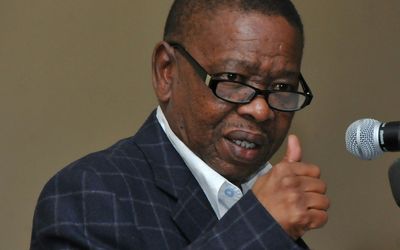Minister of Higher Education Blade Nzimande has admitted that the National Student Financial Scheme (NSFAS) is faced with many challenges.
Delivering his budget vote speech in Parliament, Mr Nzimande said the total funding available for loans and bursaries for the 2014 academic year was about R8.9bn. He said from 1991 to 2013, NSFAS had assisted more than 1.4-million students and would be assisting a further 430,000 students this academic year.
Mr Nzimande said in his budget vote speech that the department’s allocation to NSFAS for 2014-15 amounted to R6.1bn. This included R3.9bn for loans and bursaries to universities, R2.1bn for bursaries for Technical and Vocational Continuing Education and Training (TVET) colleges (formerly Further Education and Training colleges) and R116.2m for administration.
This is supplemented further by about R2.4bn made available through NSFAS recoveries, the National Skills Fund (NSF) scarce skills bursaries, through sector education and training authorities (Setas) bursaries and from bursaries such as the Department of Basic Education’s Funza Lushaka programme, bringing the total funding available for loans and bursaries for the 2014 academic year to about R8.9bn.
The minister also said that aside from expanding enrolments, there was a need to focus on quality and student success. Universities would focus on improving their graduate production from 165,995 graduates in 2012 to approximately 217,000 in 2019. The growth rate in graduates was thus expected to be significantly higher than the growth rate in enrolments, Mr Nzimande said.
The department would also be increasing investment in teaching and learning development. In the current financial year, R609m has been allocated to teaching development grants to strengthen teaching and improve learning outcomes.The department of higher education and training has said previously that the success of the National Development Plan (NDP), government’s blueprint for eliminating poverty and reducing inequality by 2030, depended on skills to be delivered by higher education. Funding shortages for university education could therefore compromise the success of the NDP.
NSFAS CEO Msulwa Daca told Parliament earlier this year that despite funding increasing significantly over the past five years, it still fell short. He said half of the students who qualified for NSFAS would not be funded because of the shortage of money.
For the 2014 medium-term expenditure framework, the department’s budget, excluding direct charges, will increase at an annual average rate of 6.8%, from R34.3bn in 2013-14 to R42bn in 2016-17.
The skills levy, which is channelled through the Setas and the NSF, is expected to increase at an annual average rate of 9.5% from R12.3bn in 2013-14 to R16.1bn in 2016-17
